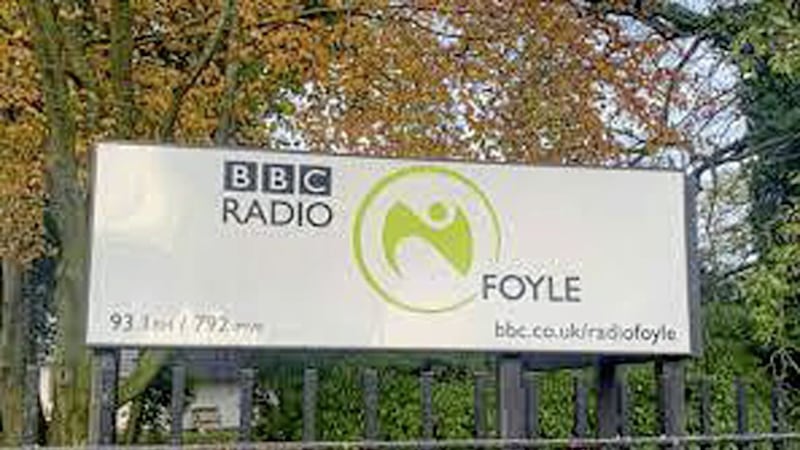A month before his untimely death on New Year’s Eve, Brian Hutton, a Derry native, wrote a typically incisive, informative and hard-hitting article on BBCNI’s plan to strangle Radio Foyle.
Hutton quoted Ana Leddy, former head of RTÉ Radio One and managing editor of Radio Foyle for a decade from 1998.
“No breakfast show, no news bulletins… local programming comes on at 1.00pm for a few hours? Does that sound like a radio station to you? I believe this is a killer blow. It’s the end of BBC Radio Foyle as we know it and is, in effect, its closure.”
It will wither on the vine. Leddy believes a local radio station should hold up a mirror to its audience. With news coming from Belfast events in Derry will quickly be sidelined, then ignored. It’s the same way BBC treats Scotland and Wales on its main TV news.
However, it’s not just a technical argument about the number of hours the station broadcasts. There’s evidence that BBC in Belfast has never been enamoured about Radio Foyle. Garbhán Downey, former editor of Derry News, and familiar Radio Foyle figure, who also did a stint as a news editor in Radio Ulster, knows whereof he speaks. He told Hutton he detected a long term effort to downgrade Radio Foyle. “They’ve been trying this in Belfast for more than twenty years,” he said. There was also a sneering attitude from the “unionist mindset in the upper echelons” in Belfast. There was irritation at Radio Foyle referring to Derry as Derry instead of BBCNI’s stupid practice of insisting on using Derry’s official British prefix when the city is first mentioned, then Derry thereafter. People in the newsroom referred to Radio Foyle disparagingly as ‘Radio Vatican’.
More than these petty prejudices against Radio Foyle is what Downey calls “this Belfast idea of becoming a nation city totally overblown about its own importance”, the belief it can act with impunity when it comes to what it regards as its own dominion. He’s not wrong about that, though it’s not as bad as it used to be until the 1980s. Until then the powers that be in BBCNI were totally aligned with the NIO as they had been with the unionist regime at Stormont. For decades since partition the BBC here was the broadcasting arm of unionism.
It wasn’t simply a matter of what was broadcast, it was an attitude of mind, much of which remains. The attempt was to create a non-existent Norn Irn identity like the slogan of the soccer team, ‘our wee country’. It’s no coincidence that although the Unionist party failed in the 1920s and 1930s to have the British government recognise ‘Ulster’ as the official name for this place, local BBC chose Radio Ulster as the name of its station, a description used by only one community.
Even today BBCNI tries to give the north some sort of independent integrity, for example pretending it has an economy when it is entirely dependent on handouts from Britain and has a budget deficit of 27 per cent of its GDP and wouldn’t last a day on is own.
In these circumstances it’s not surprising BBCNI wants rid of Radio Foyle, a stone in its shoe, which represents diversity and presents an alternative view of the world because it reflects a part of the world which has a different weltanschauung from the Belfast-centric one that dominates the north.
As Downey told Hutton, “There was always a diversity of opinion in Foyle, always a tolerance.” The paradox of the disgraceful decision to run down Radio Foyle is this. If Belfast BBC thinks the north is big enough to try to create an artificial ‘nation city’ then why is the north not big enough to accommodate two BBC radio stations?
Ah well, it’s an ill wind…It will benefit Highland Radio.









